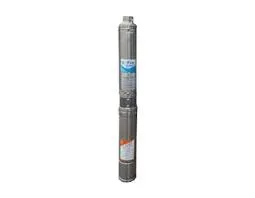Oct . 12, 2024 13:57 Back to list
deep well motor
Deep Well Motors Driving Efficiency and Reliability in Water Supply
In today's world, access to clean and reliable water sources is paramount for both residential and agricultural needs. Deep well motors play a critical role in achieving this goal by powering submersible pumps that extract water from underground aquifers. These motors are specifically designed to operate in the harsh conditions found deep below the earth's surface, offering efficiency, durability, and high performance.
Understanding Deep Well Motors
Deep well motors are electric motors that are submerged underwater within a well. They are typically coupled with submersible pumps, which are engineered to lift water from considerable depths, often exceeding 100 meters. The design of these motors allows them to function at significant depths while also being resistant to corrosion and other environmental challenges.
The main types of deep well motors are vertical and horizontal configurations, with the vertical design being more common due to its space efficiency. Submersible motors are usually oil-filled to ensure lubrication and cooling, enabling them to withstand the high temperatures and pressures encountered in deep wells.
Features and Advantages
1. High Efficiency One of the standout features of deep well motors is their high efficiency. They are designed to convert electrical energy into mechanical energy with minimal loss. This efficiency translates into lower operational costs, making them an economical choice for long-term water supply projects.
2. Durability and Reliability Given that these motors operate in challenging conditions, they are built to last. Manufacturers often utilize high-grade materials and advanced engineering techniques to enhance the robustness of these motors. They can endure prolonged usage without significant wear and tear, ensuring long-term reliability.
deep well motor

3. Easy Installation and Maintenance Deep well motors are designed for straightforward installation, with many units incorporating features that facilitate ease of maintenance. Regular maintenance checks and minimal downtime ensure that water supply systems remain operational, even in demanding scenarios.
4. Variable Speed Options Many modern deep well motors come equipped with variable speed drives, allowing operators to adjust the pump's performance based on current water demands. This flexibility optimizes energy use and helps conserve water resources, an increasingly important consideration in water management strategies.
5. Environmentally Friendly By improving energy efficiency and reducing operational costs, deep well motors contribute to a smaller carbon footprint. With growing environmental concerns, these motors serve as a sustainable solution for water extraction and distribution.
Applications
Deep well motors find diverse applications ranging from agricultural irrigation to municipal water supply systems. In rural areas, they are invaluable for providing water for crops, livestock, and household use. Cities rely on deep well systems to augment their existing water supply infrastructure, especially during dry seasons or in drought-prone regions.
Conclusion
As our need for fresh, accessible water continues to rise, deep well motors are proving to be an essential technology in addressing these demands. Their combination of efficiency, durability, and ease of use makes them a valuable asset in any water supply system. With advancements in technology and a focus on sustainability, the future of deep well motors looks promising, ensuring that communities have the water resources they need to thrive.
-
Submersible Water Pump: The Efficient 'Power Pioneer' of the Underwater World
NewsJul.01,2025
-
Submersible Pond Pump: The Hidden Guardian of Water Landscape Ecology
NewsJul.01,2025
-
Stainless Well Pump: A Reliable and Durable Pumping Main Force
NewsJul.01,2025
-
Stainless Steel Submersible Pump: An Efficient and Versatile Tool for Underwater Operations
NewsJul.01,2025
-
Deep Well Submersible Pump: An Efficient 'Sucker' of Groundwater Sources
NewsJul.01,2025
-
Deep Water Well Pump: An Efficient 'Sucker' of Groundwater Sources
NewsJul.01,2025
-
 Submersible Water Pump: The Efficient 'Power Pioneer' of the Underwater WorldIn the field of hydraulic equipment, the Submersible Water Pump has become the core equipment for underwater operations and water resource transportation due to its unique design and excellent performance.Detail
Submersible Water Pump: The Efficient 'Power Pioneer' of the Underwater WorldIn the field of hydraulic equipment, the Submersible Water Pump has become the core equipment for underwater operations and water resource transportation due to its unique design and excellent performance.Detail -
 Submersible Pond Pump: The Hidden Guardian of Water Landscape EcologyIn courtyard landscapes, ecological ponds, and even small-scale water conservancy projects, there is a silent yet indispensable equipment - the Submersible Pond Pump.Detail
Submersible Pond Pump: The Hidden Guardian of Water Landscape EcologyIn courtyard landscapes, ecological ponds, and even small-scale water conservancy projects, there is a silent yet indispensable equipment - the Submersible Pond Pump.Detail -
 Stainless Well Pump: A Reliable and Durable Pumping Main ForceIn the field of water resource transportation, Stainless Well Pump has become the core equipment for various pumping scenarios with its excellent performance and reliable quality.Detail
Stainless Well Pump: A Reliable and Durable Pumping Main ForceIn the field of water resource transportation, Stainless Well Pump has become the core equipment for various pumping scenarios with its excellent performance and reliable quality.Detail
